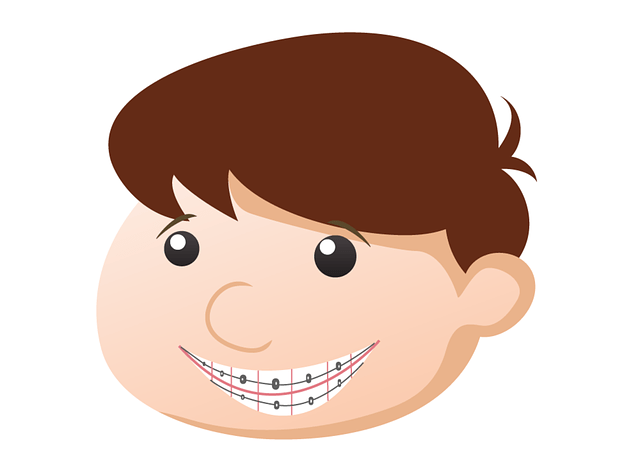Overview :

Overview :
Oral thrush, also called oral candidiasis,
is a condition in which the fungus Candida albicans builds up on the lining of your mouth. Candida is a normal organism in your mouth, but sometimes it can multiply and cause symptoms.
Oral thrush causes creamy white lesions to appear, usually on the tongue or inner cheeks. Oral thrush can sometimes spread to the roof of your mouth, gums, tonsils, or the back of the throat.
Although oral thrush can affect anyone, it is more likely to affect children and the elderly because of their weak immunity, in other people with weak immune systems or certain health conditions, or people who take certain medications.
Oral thrush is a minor problem if you are in good health, but if you have a weak immune system, symptoms may be more severe and difficult to control. What are the causes of oral thrush?
Symptoms:
Children and adults :
At first, you may not even notice the symptoms of oral thrush. Signs and symptoms may include:
1 – white, creamy lesions on your tongue, inner cheeks, and sometimes the roof of your mouth, gums, and tonsils
2 – slightly raised lesions that look like cottage cheese
3 – redness, burning, or soreness that may be severe enough to cause difficulty eating or Swallowing
4- Slight bleeding if the lesions rub or scrape 5- Cracks and
redness in the corners of your mouth
6- A cottony feeling in your mouth
7- Loss of taste
8- Redness, irritation and pain under the set of tongue (stomatitis)
In severe cases, usually related to cancer or weakened immunity from HIV/AIDS, the lesions may spread to the lower esophagus – the long muscular tube that runs from the back of the mouth to the stomach (candida esophagitis). If this occurs, you may experience Difficulty swallowing and pain or feeling as if food is stuck in your throat.
infants and nursing mothers;
In addition to the characteristic white mouth lesions, babies may have difficulty feeding or be irritable and irritable. They can pass the infection on to their mothers while breastfeeding. The infection may then pass back and forth between the mother’s breast and the baby’s mouth.
Women with candidosis breasts may experience the following signs and symptoms:
1- the nipples are unusually red, sensitive, cracked, or itchy
2- shiny or flaky skin in the dark, circular area around the nipple ( Areola)
3- Unusual pain during feeding or sore nipples between meals
4- Stab pain deep inside the breast
When do you see a doctor?
If you or your child develops white lesions inside the mouth, consult your doctor or dentist.
Thrush is uncommon in older children, teens, and adults, so if thrush appears, see your doctor to determine if further evaluation is needed to check for an underlying medical condition or other cause.
the reasons :
What are the causes of oral thrush?
Normally, your immune system works to fight off harmful invading organisms such as bacteria, fungi, viruses and bacteria, while maintaining a balance between the “good” and “bad” microbes that naturally live in your body. But sometimes these protective mechanisms fail, increasing the number of Candida fungi and allowing oral fungal infections to take over.
The most common type of Candida fungus is Candida albicans. Several factors, such as the immune system, can increase the risk of developing oral thrush.
Risk factors:
You may be at increased risk of oral thrush infection if any of these problems apply:
• Weak immunity:
Oral thrush is more likely to occur in infants and the elderly due to reduced immunity. Some medical conditions and treatments that suppress your immune system, such as cancer and its treatments, organ transplants, required medications that suppress the immune system, and HIV/AIDS can
• Diabetes:
If you have untreated or poorly controlled diabetes, saliva may contain Vaginal
yeast infection: Vaginal
yeast infection is caused by the same fungi that cause oral thrush. You can pass the infection to your baby
. Medicines:
Medications such as prednisone, inhaled corticosteroids, or antibiotics that upset the natural balance of microorganisms in your body can increase your risk of developing oral thrush.
Other oral diseases:
Wearing dentures, especially upper dentures, or having conditions that cause dry mouth can increase the risk of oral fungal infections.
Complications:
Oral thrush is rarely a problem for healthy adults and children.
For people with immunodeficiency, such as treatment for HIV/AIDS or cancer, thrush can be more dangerous for them. Untreated oral thrush can lead to more serious systemic candida infections. If you have a weak immune system, oral thrush may spread to the esophagus or other parts of the body.
protection :
After we know what are the causes of oral thrush. Measures to prevent it must be sought.
These measures may reduce the risk of candida infection:
• rinse your mouth; if you need to use a corticosteroid inhaler, be sure to rinse your mouth with water or brush your teeth after taking the medicine
• brush your teeth; At least twice a day and floss daily or as recommended by your dentist
• Check your dentures; then remove your dentures at night. Ensure that dentures fit properly and do not cause irritation. Clean your dentures daily. Ask your dentist about the best way to clean your type of dentures
• See your dentist regularly; Especially if you have diabetes or wear dentures. Ask your dentist how often you need to be checked
• Pay attention to what you eat; Try to limit the amount of foods containing sugar you eat. These may encourage the growth of candida.
• keep your blood sugar within normal if you have diabetes; sugar control
In the blood it reduces the amount of sugar in the saliva, which inhibits the growth of candida
• treatment of vaginal yeast infection; ASAP
• Treat dry mouth; Ask your doctor about ways to avoid and treat dry mouth
https://www.facebook.com/HEALTH00FOR00ALL/



